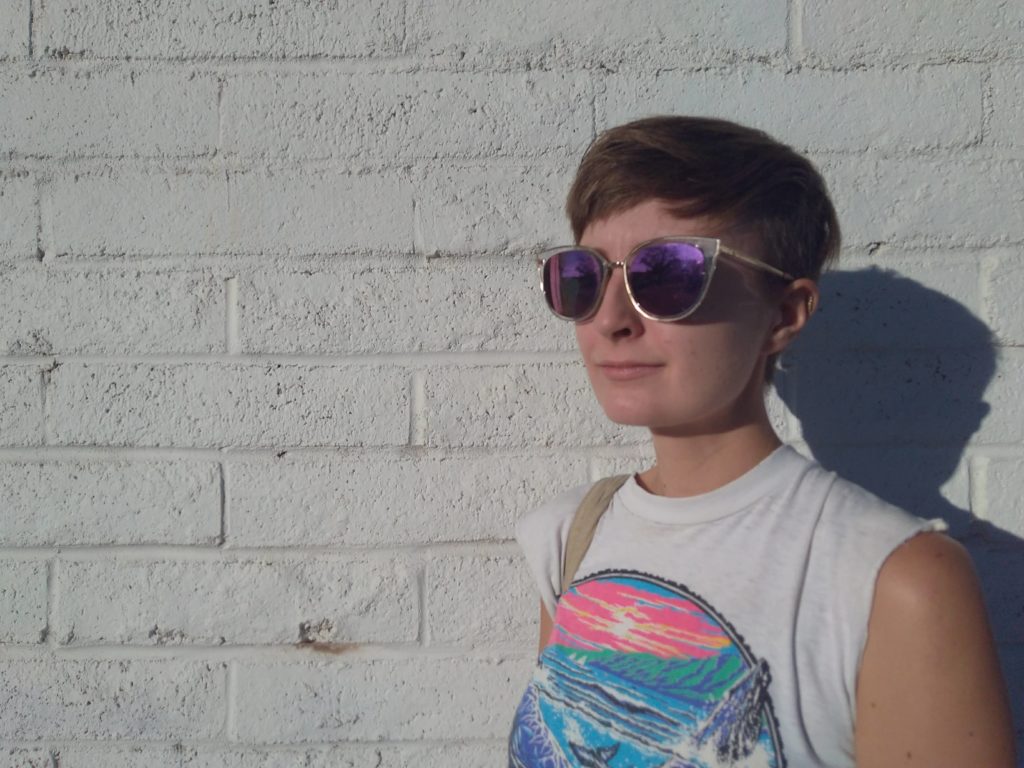
M.S. Coe’s novel New Veronia begins with a trio of teenage boys living in suburban Delaware and pondering a very specific goal: how to build their own private space in the woods, and how best to use that for parties and having as much sex as possible. In the hands of a very different writer, this could be a means for wacky misadventures or a heartwarming coming-of-age tale. New Veronia is neither of these things. Strange power dynamics within the trio begin to manifest themselves (these are teenagers, after all), and thing take an even darker turn when one of them begins to embrace a racist ideology. I talked with Coe about creating this novel and why Delaware should show up in more works of fiction.
Reading New Veronia, I began wondering if you’d created a new genre: Suburban Delaware Gothic. What drew you to the very specific locations where this novel is set?
Southern Gothic is one of my favorite genres, so I am all for starting up Suburban Delaware Gothic. Delaware is a tiny state that doesn’t often pop up in fiction, but after spending time in the southern half of the state, I grew enamored of its literary potential. I kept wondering: what would a teenager do to entertain himself here? And then, the second half of the book is set in Florida, a state I had never been to until after the first draft was completed. But who isn’t obsessed with Florida? Swamps drained to make livable land, deadly fauna, ubiquitous Florida Man headlines, pickleballing retirees—maybe I’ll retire there someday.
White supremacist groups and toxic masculinity both play large roles in your novel — and both have been in the news a lot in recent years. What was it like writing a novel that seemed to reflect some of American society’s worst impulses as they became magnified?
My increasing distress with the state of US politics and the way that some of our leaders treat and talk about human beings absolutely shaped this book. It felt cathartic to construct the horror of daily news into my characters and plot. Through writing, I could fill in the backstory behind things I couldn’t understand: swastikas graffitied around my town, the reason I no longer trusted images of the American flag, beloved TV dads turned monsters. Writing this book let me envision how we got here.
New Veronia goes to some very bleak places over the course of its narrative. Did you know from the outset that it would be heading there, or were there directions that ended up surprising you?
When I write a first draft, I allow my imagination to go wherever it wants, and that is often some pretty dark places—especially when the subject is teenage boys. And in the flush of this initial draft, I did write a scene that freaked me out: it was kind of like snuff porn involving alligators and plenty of blood. Ultimately, I had to cut it because it didn’t fit with the development of the characters and their relationships.
At times, the most basic idea of New Veronia — somewhere isolated, somewhere made by hand via cast-off materials — seems appealing; the reality of it is far less pleasant. Was it a challenge to find the balance between these two elements of the novel?
Building a sex fort out in the woods does sound like a good idea, right? But funny how it doesn’t turn out that way. I’m really into this concept of content and form, and how in creative writing, form can enhance content or vice versa. The idea of a sex fort out in the woods is idyllic (at least, it is to the characters), but its actualization brings them grief. This plotline is echoed in the form of the book, which breaks—in terms of setting, genre, and character desire—about halfway through. While I was writing, thinking about the alignment of content and form helped me to balance the appeal of desire versus the loneliness of reality.
What’s next for you?
I’m working on a couple of short stories before I start the long process of revisions on a novel manuscript about a fifty-four-year-old grandmother and recent widow who finds a way to give herself an entirely different life—not just present and future, but past, too—in the great state of (you guessed it) Florida.
Follow Vol. 1 Brooklyn on Twitter, Facebook, and sign up for our mailing list.
